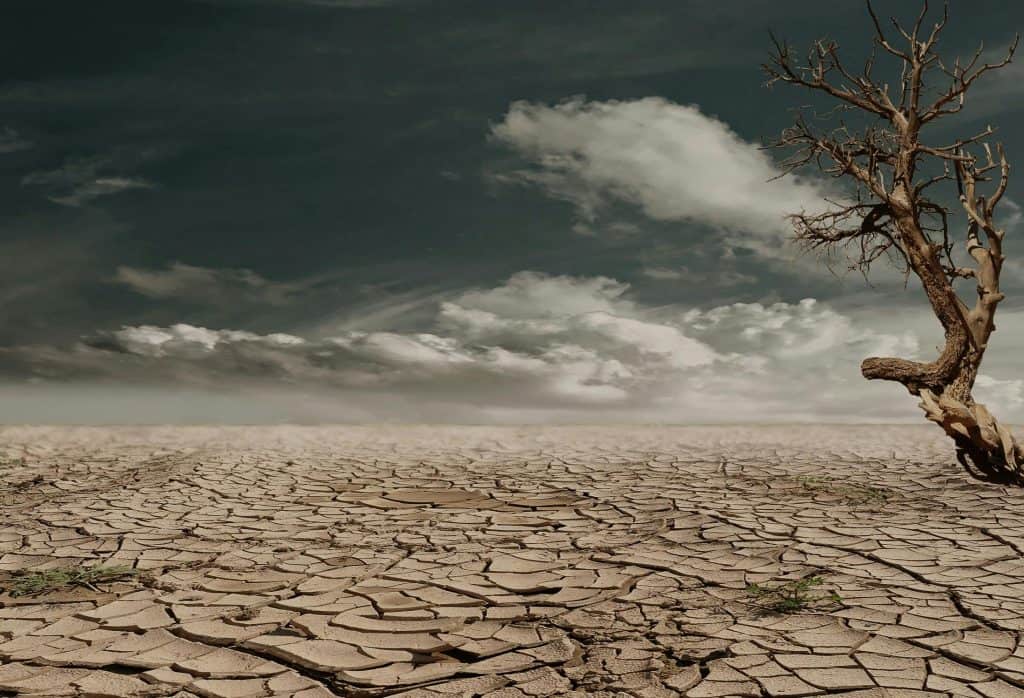
Climate change is the long-term alteration of temperature and typical weather patterns in a place. It is caused by factors such as human activities, including the burning of fossil fuels and deforestation, which lead to an increase in greenhouse gas emissions.
This results in the Earth’s temperature rising and causing various negative effects on the environment, including but not limited to, rising sea levels, extreme weather events, and the disruption of ecosystems. The urgent need to address climate change is essential for the sustainability of our planet and the well-being of future generations.
Causes Of Climate Change
Climate change is an urgent global issue that threatens the delicate balance of our planet’s ecosystems. Understanding the causes and drivers behind climate change is essential for finding effective solutions. The major causes of climate change include greenhouse gas emissions, deforestation, and burning fossil fuels.
Greenhouse Gas Emissions
One of the primary factors contributing to climate change is the increase in greenhouse gas emissions. Greenhouse gases trap heat in the Earth’s atmosphere, leading to a rise in global temperatures. The most prevalent greenhouse gas is carbon dioxide (CO2), which is released through various human activities such as burning fossil fuels, industrial processes, and deforestation. Methane (CH4) and nitrous oxide (N2O) are other significant greenhouse gases that contribute to the warming effect.
Deforestation
Deforestation, the clearing of vast areas of forests, is another major cause of climate change. Forests act as natural carbon sinks, absorbing large amounts of carbon dioxide and releasing oxygen. However, deforestation disrupts this balance by releasing stored carbon back into the atmosphere. Additionally, the loss of trees reduces the planet’s capacity to absorb CO2, exacerbating the greenhouse effect and global warming. Deforestation also leads to the loss of biodiversity, disrupts water cycles, and increases soil erosion.
Burning Fossil Fuels
The burning of fossil fuels, such as coal, oil, and natural gas, is a significant contributor to climate change. When these fuels are burned for energy production, immense amounts of carbon dioxide are released into the atmosphere. This release of CO2 enhances the greenhouse effect and contributes to the steady rise in global temperatures. The reliance on fossil fuels for transportation, electricity generation, and industrial processes continues to intensify the impact of climate change. Transitioning to cleaner and renewable sources of energy is critical to mitigating the effects of climate change.
In conclusion, greenhouse gas emissions, deforestation, and burning fossil fuels are key factors driving climate change. It is vital that we take immediate action to reduce these causes and adopt sustainable practices to protect our planet for future generations. By understanding and addressing these causes, we can work towards a more sustainable and resilient future.
Effects Of Climate Change
Climate change is one of the most pressing global issues of our time, with far-reaching effects on the environment and humanity. Rising global temperatures, melting ice caps, and extreme weather events are just some of the devastating impacts of this phenomenon. Let’s delve deeper into each of these effects:
Rising Global Temperatures
One of the primary consequences of climate change is the steady increase in global temperatures. The Earth’s average surface temperature has risen by approximately 1 degree Celsius since the late 19th century. This may seem like a small change, but it has profound implications for our planet’s ecosystems and inhabitants.
The rise in global temperatures has resulted in more frequent and intense heatwaves, which pose a significant risk to human health. Increased temperatures also lead to an accelerated melting of ice caps, rising sea levels, and changing precipitation patterns, disrupting ecosystems and threatening biodiversity.
Melting Ice Caps
The melting of ice caps is a visible and alarming consequence of climate change. The polar ice caps in the Arctic and Antarctica are rapidly shrinking due to rising temperatures. This loss of ice has a cascading effect on global weather patterns and sea levels.
As ice caps melt, they contribute to the rise in sea levels, threatening coastal cities and low-lying regions. This not only displaces millions of people but also increases the risk of flooding and erosion. Additionally, the loss of ice reduces the planet’s reflectivity, leading to further warming as more solar energy is absorbed rather than reflected back into space.
Extreme Weather Events
Climate change has amplified the frequency and intensity of extreme weather events around the world. Heatwaves, hurricanes, droughts, and heavy rainfall are some examples of the catastrophic events that have become more common.
Extreme weather events have devastating effects on human lives, infrastructure, and economies. They increase the risk of destructive wildfires, damage crops, disrupt water supplies, and lead to the spread of diseases. Vulnerable communities, especially those in poverty, are often the hardest hit by these events, exacerbating existing inequalities.
It is crucial to understand the effects of climate change as they shape not only our present but also our future. By taking action now, we can mitigate these impacts and work towards a more sustainable and resilient world.
Impact On Ecosystems
Impact on Ecosystems:
Climate change poses a significant threat to ecosystems worldwide, leading to detrimental impacts on biodiversity, food chains, and ocean health.
Loss Of Biodiversity
The loss of biodiversity due to climate change accelerates the extinction of species, disrupting the delicate balance within ecosystems.
Disruption Of Food Chains
Climate change disrupts food chains by altering the distribution and abundance of species, affecting the availability of resources and leading to imbalances in ecosystems.
Ocean Acidification
Ocean acidification, a consequence of climate change, poses a grave threat to marine ecosystems, impacting coral reefs, marine life, and overall ocean health.
Social And Economic Implications
Climate change has far-reaching consequences, extending beyond the environmental realm to impact the social and economic fabric of our society. These implications, ranging from displacement of populations to significant shifts in healthcare and agriculture, call for urgent attention and action.
Climate Refugees
The phenomenon of climate refugees is a heartrending consequence of climate change, as the displacement of communities due to rising sea levels, extreme weather events, and loss of habitable land becomes increasingly prevalent. It serves as a glaring reminder of the human toll exacted by environmental degradation, necessitating robust measures to address the needs of these vulnerable populations.
Increased Healthcare Costs
Climate change exerts a significant impact on public health, precipitating a surge in healthcare costs as extreme weather events, heat waves, and air pollution escalate the prevalence of respiratory illnesses, cardiovascular diseases, and heat-related ailments. The strain on healthcare systems underscores the imperative of proactive measures to mitigate these burgeoning health challenges.
Impact On Agriculture
The ramifications of climate change reverberate throughout the agricultural sector, ushering in unparalleled disruptions to crop yields, water availability, and food security. The downstream effects encompass heightened food prices, reduced agricultural productivity, and heightened susceptibility to natural disasters, underscoring the pressing need for sustainable agricultural practices and adaptive strategies.
Mitigation Strategies
As climate change continues to pose a significant threat to our planet, it’s essential to explore mitigation strategies that can help reduce its impact. These strategies encompass a range of initiatives aimed at decreasing the emissions of greenhouse gases and transitioning to more sustainable practices. Through the implementation of mitigation strategies, we can work towards safeguarding our environment for future generations.
Renewable Energy Sources
Renewable energy sources, such as solar, wind, and hydroelectric power, play a crucial role in mitigating climate change. By harnessing the power of these natural resources, we can significantly reduce our reliance on fossil fuels, thereby lowering carbon emissions. Embracing renewable energy technologies not only promotes environmental sustainability but also fosters energy independence and creates new job opportunities.
Energy Efficiency
Energy efficiency is a fundamental component of mitigation strategies, as it aims to optimize energy consumption and reduce waste. Implementing energy-efficient practices in households, industries, and transportation can lead to substantial reductions in greenhouse gas emissions. By improving the efficiency of appliances, vehicles, and buildings, we can minimize our carbon footprint and contribute to the overall mitigation of climate change.
Carbon Capture And Storage
Carbon capture and storage (CCS) technologies are designed to capture carbon dioxide emissions from industrial processes and power generation activities. Once captured, the CO2 is transported and securely stored underground, preventing it from entering the atmosphere. This approach holds promise for mitigating climate change by mitigating a significant source of greenhouse gas emissions and facilitating the transition to a low-carbon economy.
Adaptation Measures
Climate change is an ongoing and pressing issue that requires immediate action. As our planet continues to experience the effects of global warming, it is crucial to implement adaptation measures to mitigate the impact and ensure a sustainable future. These measures encompass various strategies and practices aimed at building resilience, conserving resources, and establishing early warning systems.
Resilient Infrastructure
One of the key adaptation measures to combat climate change is the development of resilient infrastructure. With extreme weather events becoming more frequent and intense, it is essential to construct infrastructure that can withstand these challenges. This includes buildings, roads, and bridges that are designed to endure high winds, heavy rainfall, and rising sea levels. By investing in resilient infrastructure, we can minimize the damage caused by natural disasters and ensure the durability of essential systems.
Water Conservation Practices
In the face of climate change, adopting water conservation practices is vital to ensure the availability of this precious resource. Increasing temperatures and changing precipitation patterns pose significant threats to water sources, making conservation crucial. Implementing strategies such as rainwater harvesting, efficient irrigation systems, and water recycling can help reduce water consumption and preserve this invaluable resource. By practicing responsible water usage, we can mitigate the impact of climate change on water scarcity and contribute to a more sustainable future.
Early Warning Systems
To effectively respond to the impacts of climate change, establishing early warning systems is of utmost importance. These systems employ advanced technology and data analysis to provide timely alerts and notifications about potential hazards. Whether it’s severe storms, floods, or heatwaves, early warnings enable communities to take necessary precautions and evacuate if needed. By implementing robust early warning systems, we can save lives, minimize economic losses, and enhance our ability to cope with the challenges posed by climate change.
International Cooperation
International Cooperation is crucial in addressing the challenges posed by climate change. In order to tackle this global issue, countries around the world need to come together, collaborate, and take collective action. Several key international agreements and initiatives have been put in place to foster this cooperation. Let’s take a closer look at three of them:
Paris Agreement
The Paris Agreement is a landmark global accord adopted by 196 countries in 2015. Its primary goal is to limit global warming to well below 2 degrees Celsius above pre-industrial levels while pursuing efforts to limit the temperature increase to 1.5 degrees Celsius. This agreement emphasizes the importance of mitigating greenhouse gas emissions, adapting to the impacts of climate change, and providing financial and technological support to developing countries.
Un Framework Convention On Climate Change
The UN Framework Convention on Climate Change (UNFCCC) was established in 1992 with the objective of stabilizing greenhouse gas concentrations in the atmosphere. It provides a framework for international collaboration and policy-making to combat climate change. The UNFCCC sets the stage for annual Conference of the Parties (COP) meetings where countries discuss and negotiate climate-related actions and commitments.
Global Climate Action Summits
The Global Climate Action Summits serve as platforms for governments, businesses, organizations, and individuals to showcase their climate actions, share best practices, and inspire others to take meaningful steps towards addressing climate change. These summits bring together diverse stakeholders to exchange ideas, accelerate climate action, and strengthen international cooperation.
In conclusion, international cooperation plays an essential role in addressing climate change. The Paris Agreement, UNFCCC, and Global Climate Action Summits are just some of the important initiatives that promote collaboration and collective efforts in tackling this global challenge.
Conclusion
Addressing climate change is urgent. Collective action is necessary for positive impact. Prioritizing sustainability and renewable energy sources is crucial. Being mindful of our environmental footprint can lead to a healthier planet for future generations. Let’s work together towards a greener future.



